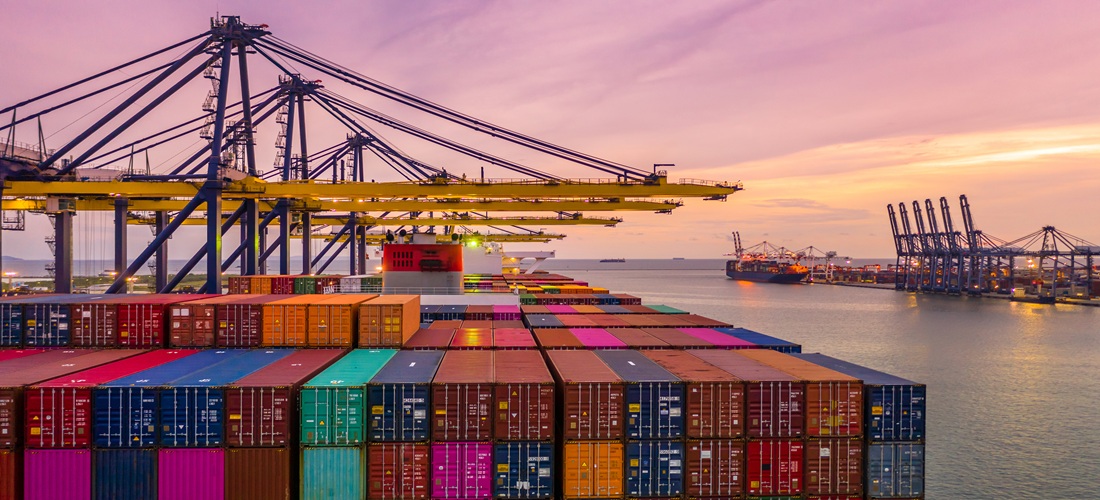
Maritime Crisis: Container Shortage and Its Impact on Global Trade
Jan, 03, 2025 Posted by Denise VileraWeek 202501
The global maritime logistics sector is experiencing one of its most significant crises. Wars, climate change, and economic blockades have caused severe disruptions, ranging from a container shortage to skyrocketing freight costs. This situation exposes the fragility of global supply chains and presents unprecedented challenges to the world economy.
A Global Landscape of Instability
In recent years, armed conflicts have reached unprecedented levels not seen since World War II. Combined with extreme weather events and trade blockades, these factors have led to the collapse of significant ports and disruptions of strategic routes. Notable examples include the grounding of the Ever Given in the Suez Canal, droughts affecting the Panama Canal, Russia’s blockade of Ukrainian ports, and attacks on ships in the Red Sea.
“With rising tensions in the region, the Suez Canal has reduced operations by up to 80%, forcing reroutes that add 10 to 15 days to trips between the Asia-Pacific and Europe,” explains Alejandro Arroyo Welbers, an expert in International Trade at the Austral University. These detours increase costs, prolong transportation times, and worsen congestion in ports like Valencia, Marseille, and Singapore, already operating at capacity limits.
The Role of Strategic Routes
Critical channels like Suez and Panama are vital for international trade but face severe operational limitations. In Panama, lower water levels have reduced daily ship traffic from 26 to just 18 vessels, significantly cutting global transport capacity.
Geopolitical tensions in strategic areas, such as the Strait of Hormuz—which handles 20% of the world’s liquefied natural gas and one-fifth of global oil—further increase risks and costs. During conflicts like the Gulf War, ships were forced to redirect cargo to distant ports, raising logistical costs and transport times.
The Container Shortage and Economic Impact
One of the most pressing challenges today is the shortage of containers. While some regions face container surpluses, others, like European ports, suffer from critical shortages. Director of SN Customs Studio, Silvia Notte, notes, “This imbalance drives up transportation costs, making some routes unviable and directly affecting international trade.”
Between 2023 and 2024, container shipping rates on routes such as Shanghai-Europe surged by up to 256%, escalating costs for industries and consumers. Climate events like hurricanes and volcanic eruptions have further disrupted logistics, forcing detours and causing delays.
Environmental Impacts and Sustainability
The maritime crisis also has significant environmental implications. Longer routes increase fuel consumption and greenhouse gas emissions. UNCTAD estimates that the extended Singapore-Rotterdam route now emits 70% more pollutants than before. With maritime transport responsible for 3% of global emissions, the industry faces mounting pressure to adopt more sustainable practices.
Solutions and Opportunities on the Horizon
Despite these challenges, experts emphasize the need for innovative solutions. Freight forwarders are critical in identifying alternative routes and mitigating economic impacts. Furthermore, the crisis represents an opportunity to rethink global logistics, diversify trade routes, and invest in technologies to enhance supply chain resilience.
“The crisis should not be seen merely as an obstacle but as a chance to transform how we operate globally,” says Notte. Investments in infrastructure, coordinated policies, and sustainable practices are essential to address current challenges and ensure maritime trade’s economic and environmental viability in the future.
A Multifaceted Crisis
Economic, climatic, and geopolitical factors have created a perfect storm in the logistics sector. The direct impact on costs and growing environmental concerns highlight the urgency of transforming traditional operational models. The future demands resilience, innovation, and global collaboration to overcome the maritime crisis and prepare the industry for increasingly complex challenges.
Source: Forbes Brasil
-
Ports and Terminals
Aug, 15, 2024
0
Container ship collides into Port of Santos dock
-
Trade Regulations
May, 18, 2021
0
Brazil and India to increase bilateral trade by double digits by 2024
-
Other Cargo
Mar, 29, 2023
0
Cotton: Brazil exports 63,631 thousand tonnes in March
-
Economy
Jun, 16, 2021
0
Japan sees biggest jump in exports in 41 years in May

